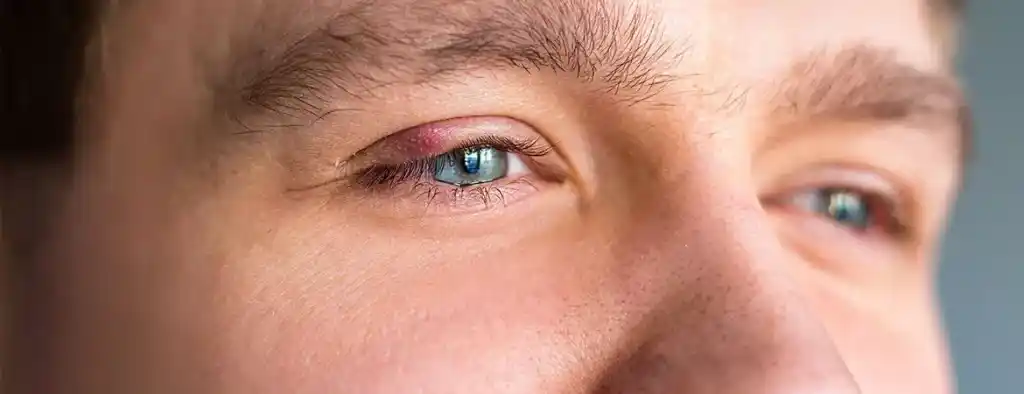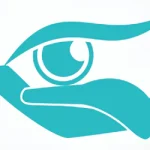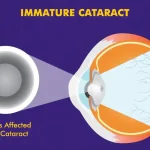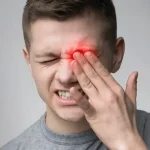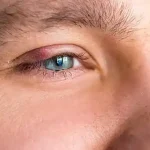Eye twitching, medically known as myokymia, is a common yet often puzzling condition where involuntary spasms occur in the muscles of the eyelid. Although typically harmless, persistent twitching can be frustrating and may signal underlying issues. This blog will explore the most common reasons for eye twitching and provide actionable solutions to address them.
What is Eye Twitching?
Eye twitching refers to involuntary contractions or spasms in the eyelid muscles. These spasms often occur in the upper or lower eyelid and may last for a few seconds to several minutes. While most cases are benign, chronic or recurring twitching could indicate underlying medical conditions that require attention.
5 Reasons Behind Eye Twitching
Stress and Fatigue
One of the most common eye twitching reasons is stress. When you’re under pressure, your body releases hormones that can overstimulate the nerves controlling your eye muscles, leading to spasms. Fatigue, often linked to stress, further exacerbates the issue.
Symptoms:
- Twitching during stressful situations.
- Increased spasms after long periods of work or poor sleep.
What to Do:
- Practice relaxation techniques such as yoga or meditation.
- Ensure you get 7–8 hours of quality sleep every night.
Caffeine and Alcohol Intake
Excessive consumption of caffeine or alcohol can overstimulate your nervous system, leading to twitching. Both substances act as stimulants, heightening nerve activity in the eyelids.
Symptoms:
- Eye twitching following heavy coffee or alcohol intake.
- Spasms that subside after reducing consumption.
What to Do:
- Limit caffeine and alcohol intake to moderate levels.
- Replace caffeinated beverages with water or herbal tea.
Eye Strain and Digital Devices
Prolonged screen time is a significant reason behind eye twitching. Staring at computers, smartphones, or tablets for extended periods can cause digital eye strain, leading to muscle fatigue and twitching.
Symptoms:
- Twitching after long hours of screen use.
- Accompanying symptoms like dry eyes or headaches.
What to Do:
- Follow the 20-20-20 rule: Look away from your screen every 20 minutes at an object 20 feet away for 20 seconds.
- Use blue light-blocking glasses or adjust your screen’s brightness.
Nutritional Deficiencies
Lack of essential nutrients like magnesium, potassium, or vitamin B12 can impair muscle function and trigger eyelid spasms. Poor nutrition affects the balance of electrolytes and the overall health of your muscles.
Symptoms:
- Persistent twitching alongside fatigue or muscle cramps.
- Improved symptoms after dietary adjustments.
What to Do:
- Incorporate nutrient-rich foods like leafy greens, nuts, seeds, and whole grains into your diet.
- Consider supplements after consulting your doctor.
Allergies or Irritation
Allergies and eye irritation are less-known but important eye twitching reasons. Allergic reactions cause the release of histamines, leading to itching and irritation in the eyes, which can trigger twitching.
Symptoms:
- Twitching accompanied by redness, itching, or swelling.
- Increased frequency during allergy season or after exposure to allergens.
What to Do:
- Avoid allergens and use antihistamine eye drops as recommended by your doctor.
- Practice good hygiene to reduce irritation.
When to See a Doctor?
While most cases of eye twitching are harmless, certain symptoms may indicate a more serious condition that requires medical attention:
- Persistent twitching that lasts longer than two weeks.
- Twitching spreads to other parts of the face.
- Eye spasms affect both eyelids.
- Accompanying symptoms like vision changes or severe pain.
Eye Twitching Remedies
1. Warm Compress
Applying a warm compress to your eyelids helps relax the muscles and reduce twitching.
2. Manage Stress
Incorporate relaxation techniques like deep breathing, meditation, or gentle yoga into your daily routine.
3. Take Regular Breaks
If screen time is unavoidable, take frequent breaks to reduce eye strain.
4. Stay Hydrated
Drink plenty of water to maintain electrolyte balance and support healthy muscle function.
5. Maintain a Healthy Diet
Focus on foods rich in magnesium, potassium, and vitamins to prevent deficiencies that contribute to twitching.
6. Avoid Stimulants
Limit your consumption of caffeine, alcohol, and other stimulants to minimise nerve overstimulation.
Following these practices can minimise the risk of experiencing persistent or uncomfortable eye spasms.
Take the first step toward healthier, more beautiful eyes Book an Appointment with Centre for Sight in India!
Frequently Asked Questions
What is eye twitching?
Eye twitching is an involuntary, repetitive spasm of the eyelid muscles.
Is eye twitching a serious condition?
Eye twitching is usually not serious and often resolves on its own.
How long does eye twitching typically last?
Eye twitching can last from a few seconds to several days or weeks.
What are the most common causes of eye twitching?
Common causes include stress, fatigue, caffeine, and eye strain.
Are there any home remedies that can help with eye twitching?
Yes, reducing stress, getting adequate sleep, limiting caffeine, and applying warm compresses can help.
How do I stop my eye from twitching?
Rest, manage stress, avoid caffeine, and ensure proper hydration to reduce eye twitching.
What are some exercises that can help relax the eyelids?
Gentle eyelid massages, blinking exercises, and focusing on distant objects can help relax the eyelids.
Should I see a doctor about my eye twitching?
Consult a doctor if twitching persists for more than a few weeks, affects other parts of your face, or is accompanied by other symptoms.
Why does my eye keep twitching?
Eye twitching can result from stress, fatigue, caffeine intake, eye strain, or nutritional deficiencies. It’s often temporary and resolves with lifestyle adjustments.
Are there effective eye twitching remedies?
Yes, remedies like warm compresses, relaxation techniques, limiting caffeine, and maintaining a nutrient-rich diet can alleviate twitching.
When should I see a doctor for eye twitching?
If twitching persists for more than two weeks, spreads to other facial muscles, or is accompanied by vision changes, consult an eye specialist promptly.
